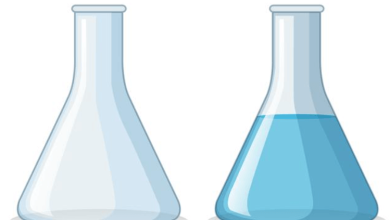Wellhealthorganic.Com/How-Protein-Can-Help-You-Lose-Weight-And-Know-Why-Protein-Is-Good-For-Weight-Loss

When it comes to shedding those extra pounds, protein can be your greatest ally. Not only does protein rev up your metabolism and support weight loss, but it also plays a crucial role in keeping you feeling full longer. But wait, there’s more to protein’s benefits than just that. Let’s explore how this powerhouse nutrient can be the missing piece in your weight loss puzzle.
Protein’s Role in Metabolism
Protein plays a crucial role in boosting your metabolism, aiding in weight loss by increasing energy expenditure at rest.
When you consume protein, your body requires more energy to digest and metabolize it compared to fats and carbohydrates. This process is called the thermic effect of food.
Protein’s Effect on Appetite Control
Protein plays a crucial role in controlling your appetite through various mechanisms. Consuming protein-rich foods can increase feelings of fullness and satiety, leading to reduced overall calorie intake.
Understanding how protein affects your hunger levels can be key in managing your weight effectively.
Appetite Regulation Mechanisms
By consuming adequate amounts of protein, you can effectively regulate your appetite and potentially support weight loss efforts through various mechanisms.
Protein-rich meals help control hunger hormones, such as ghrelin and peptide YY, which play crucial roles in signaling fullness and reducing food intake.
Incorporating protein into your diet can aid in appetite regulation, leading to better weight management outcomes and improved overall health.
Protein and Satiety
To better understand how protein influences satiety and appetite control, it’s essential to delve into the physiological responses triggered by protein consumption.
Protein increases satiety signals, making you feel fuller for longer periods.
By reducing hunger and cravings, protein can aid in weight loss efforts.
Including protein-rich foods in your diet can help you manage your appetite more effectively, supporting your weight loss journey.
Protein’s Impact on Muscle Mass
Increasing your protein intake can have a significant impact on your muscle mass, leading to improvements in strength and overall body composition.
Protein aids in muscle repair post weight training and plays a crucial role in protein synthesis, essential for muscle building.
Protein’s Thermic Effect on Weight Loss
Protein contributes to weight loss through its thermic effect. This refers to the energy expenditure required for the digestion, absorption, and processing of nutrients, ultimately boosting your metabolism.
This process, known as the thermic effect of food, highlights protein’s efficiency in increasing calorie expenditure. By incorporating protein into your diet, you can take advantage of its weight loss benefits, as it requires more energy to metabolize compared to fats and carbohydrates.
Protein’s Ability to Aid Fat Loss
One key aspect to consider when aiming to shed excess body fat is the significant role that protein plays in facilitating fat loss.
Protein boosts energy levels, aiding in maintaining weight while promoting fat loss.
Protein’s Importance in Satiety Signals
Protein plays a crucial role in helping you feel full and satisfied after a meal.
When you consume protein-rich foods, your body releases satiety signals that reduce hunger and prevent overeating.
This can be beneficial for weight loss as it helps you manage your calorie intake more effectively.
Read more: Wellhealthorganic.Com/Health-Benefits-Of-Turmeric-Tea
Satiety Signals and Protein
By consuming protein-rich foods, you can effectively regulate your satiety signals, which play a crucial role in managing your appetite and overall food intake.
Proteins help control satiety hormones, making you feel fuller for longer periods and reducing cravings. This mechanism aids in weight management by preventing overeating and snacking on unhealthy foods.
Choosing protein-rich options can support your weight loss journey by keeping you satisfied and on track.
Protein and Feeling Full
Understanding how protein influences your sense of fullness is key to grasping its significance in regulating your appetite and food intake.
Protein helps in feeling full because it affects the hormones responsible for signaling satiety.
Protein’s Contribution to Weight Management
In the realm of weight management, the role of protein can’t be understated. Protein intake plays a crucial role in weight management due to its impact on metabolism and satiety.
High protein diets can increase the number of calories burnt through the thermic effect of food and enhance feelings of fullness, reducing overall calorie intake. Additionally, protein’s efficient absorption supports muscle growth, aiding in weight loss efforts.
Conclusion
In conclusion, protein is the powerhouse behind your weight loss journey.
Imagine protein as the fuel that revs up your metabolism, keeps hunger at bay, and builds lean muscle mass.
Picture protein as the secret ingredient that helps you shed unwanted fat and achieve your body goals.
By incorporating protein into your diet, you’re setting yourself up for success in managing your weight and transforming your body composition.
So, grab that protein-rich snack and let it guide you towards a healthier, fitter you.



